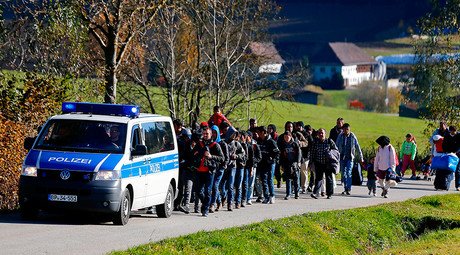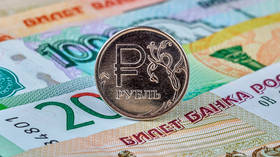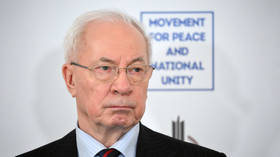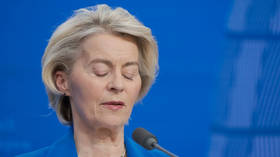Limited free movement: EU to strengthen border control to fight terrorism
Control at external European Union borders will be strengthened for all nationals, including those who benefit from the freedom of movement, EU officials announced on Friday, following an extraordinary meeting in Brussels. Internal border checks can be enhanced "at request."
"Strengthening the control at external [EU] borders is indispensable for the protection of European citizens, especially in the light of the recent terrorist attacks," French Interior Minister Bernard Cazeneuve told journalists in Brussels, where European ministers responsible for justice, home affairs and security met to discuss immediate measures to fight terrorism.
“We've waited far too long to adopt such measures,” the French official said, adding that a draft reform of the Schengen code will be proposed by the end of the year “to allow systematic and obligatory checks to be carried out at all our external borders and on all people entering the Schengen area, including those who benefit from the freedom of movement.”
New border measures are "extremely urgent" and will be applied "as soon as possible," EU officials said after the crisis meeting, adding that only "a formal agreement" is needed at this point.
Meanwhile, France will maintain the control on its borders set up last Friday "as long as the terrorist threat requires us to do so," the French minister said, adding that Europe is faced with "new type of terrorism."
If any other EU country "wants to enhance internal security under current threat, it can reintroduce [internal] border controls for a limited period," EU Commissioner for Migration, Home Affairs and Citizenship Dimitris Avramopoulos said at the press conference. "It is up to any country to judge, and if such a request is submitted, the commission will accept it," he added.
BREAKING: Two Paris suicide bombers came through Greece – prosecutor https://t.co/glxGM2chGepic.twitter.com/X1BgE5hpaQ
— RT (@RT_com) November 20, 2015"The current legislative framework already allows for us to carry out systematic and coordinated controls, including on people who enjoy free movement," said Deputy Prime Minister of Luxembourg Etienne Schneider, who also heads the ministries of economy, defense and interior security.
Targeted amendments to the Schengen code will be deployed, said Schneider, adding: "We've talked enough now – it's high time for us to start implementing our decisions."
Echoing Luxembourgian politician's words, the French interior minister said that Europe "cannot wait for another tragedy to speed up our work." The EU also has to control the influx of migrants coming in from Greece, Cazeneuve said, adding that the task to boost dialogue with Turkey and "speed up the return of people who do not benefit from international protection" is also on the table.
Europe must "trace the movement of people who seek to attack us," the French minister said, also calling to enhance European passenger name record (PNR) system and information exchange between the countries. Calling the PNR "absolutely vital," the official said that intra-European flights must also be included into the record, and that the authorities should be allowed to keep passenger information for a longer period of time. "One month retention of data wasn't serious," Cazeneuve said, calling to expand it to one year "at least."
READ MORE: Getaway: How Paris attacker, now ‘fleeing in Europe’, evaded police 3 times after carnage
To combat terrorism in the long term, the EU needs better and more efficient cooperation in terms of intelligence information exchange, particularly to identify jihadists. The union has tools for such sharing, its officials told the journalists, but a "European intelligence agency" might be an idea to consider in a longer term.
3 suspected of links with #ParisAttacks arrested in #Brusselshttps://t.co/hCYHn9AxWNpic.twitter.com/BQfsvPQHQK
— RT (@RT_com) November 15, 2015"If we had more and better intelligence sharing, some of what has happened might be predictable and preventable," Commissioner Avramopoulos said, adding that only five out of 28 EU member states have so far agreed to exchange intelligence data.
READ MORE: Sweden raises terror threat level to second highest citing 'concrete information'
Saying that national approach is no longer enough and Europe needs to work more together in the face of the threat that has already attacked its values, the officials also talked about measures against money laundering, which might be "a solid basis" in fighting the financing of terrorism. Financial intelligence must be strengthened, the EU ministers announced, saying that action must be taken against terrorism which has "huge resources," including financial, logistical, military and propaganda capacities "on all continents."














